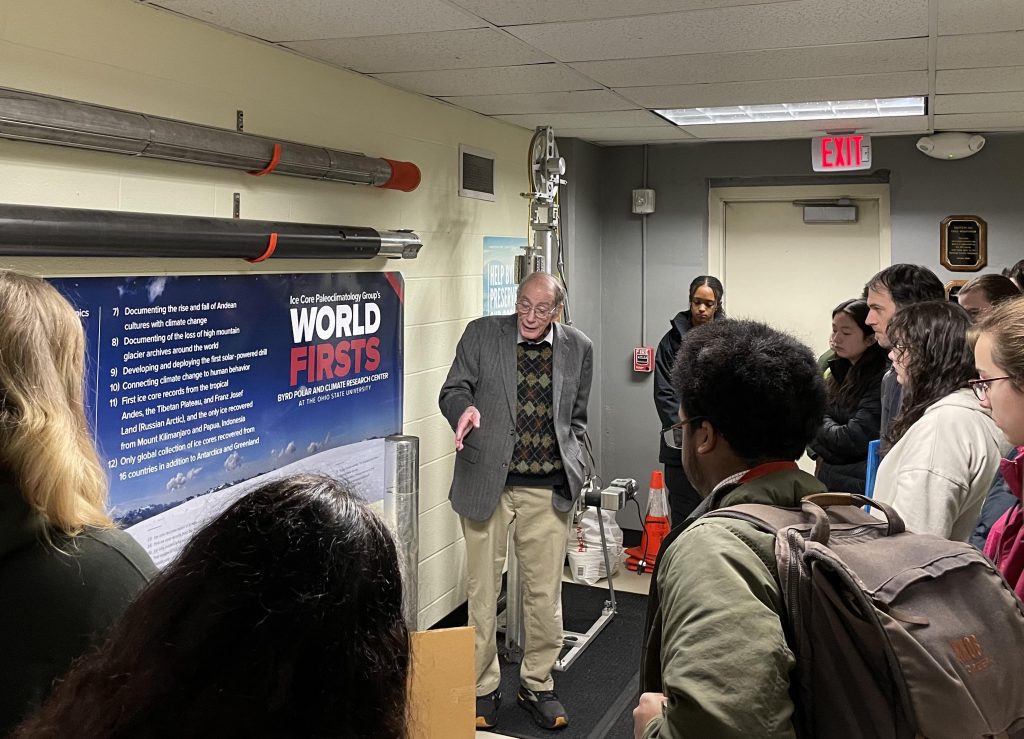
The College of Wooster Paleoclimate Class was fortunate to visit, Dr. Lonnie Thompson, director and founder of the Byrd Polar Ice Core Lab during lab. Here Dr. Thompson give the class the rundown of all the “firsts” in tropical and ice core lab history. We are looking forward to viewing the relatively recent movie about Dr. Thompsons’ epic career – Canary. 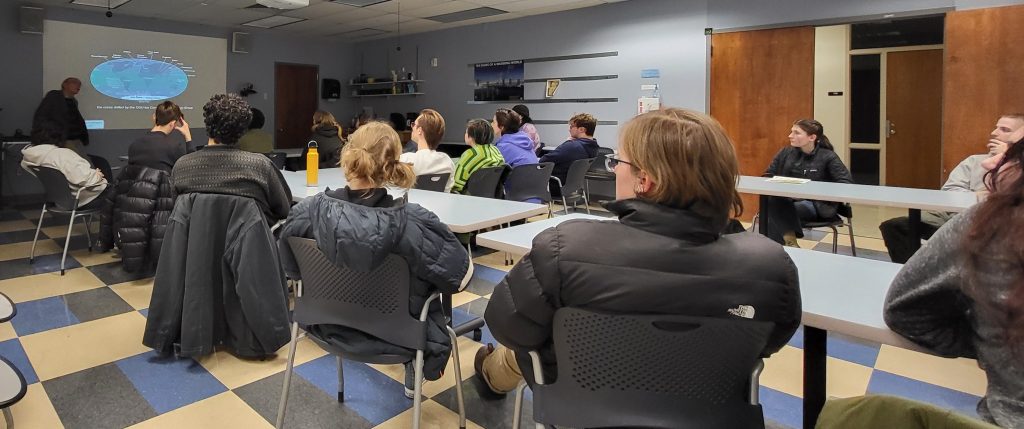
Dr. Thompson describes the core collections from the tropics and from higher latitudes and the findings that are relevant to ongoing climate changes of today and into the future. His core sites include high altitude ice caps and glaciers in Peru, Bolivia, Tanzania, New Guinea, Tibet and Alaska. The class will be using his data from Quelcaya in Peru as projects and labs. Published data from the ice core lab is freely available for download and use through the NCEI (National Center for Environmental Information) maintained by NOAA.
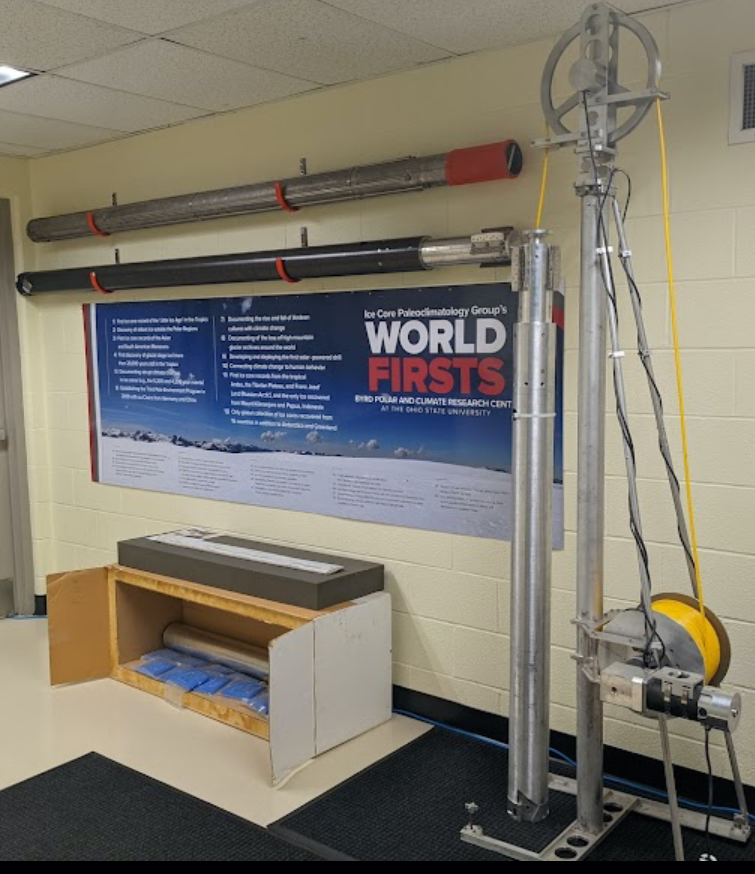
Ice coring in remote and logistically challenging field sites depends on the understanding the physics of ice and glaciers as well as the mechanical behavior of metals and other materials. The team has been able to rack up the records of “Firsts” through experience and collaboration.
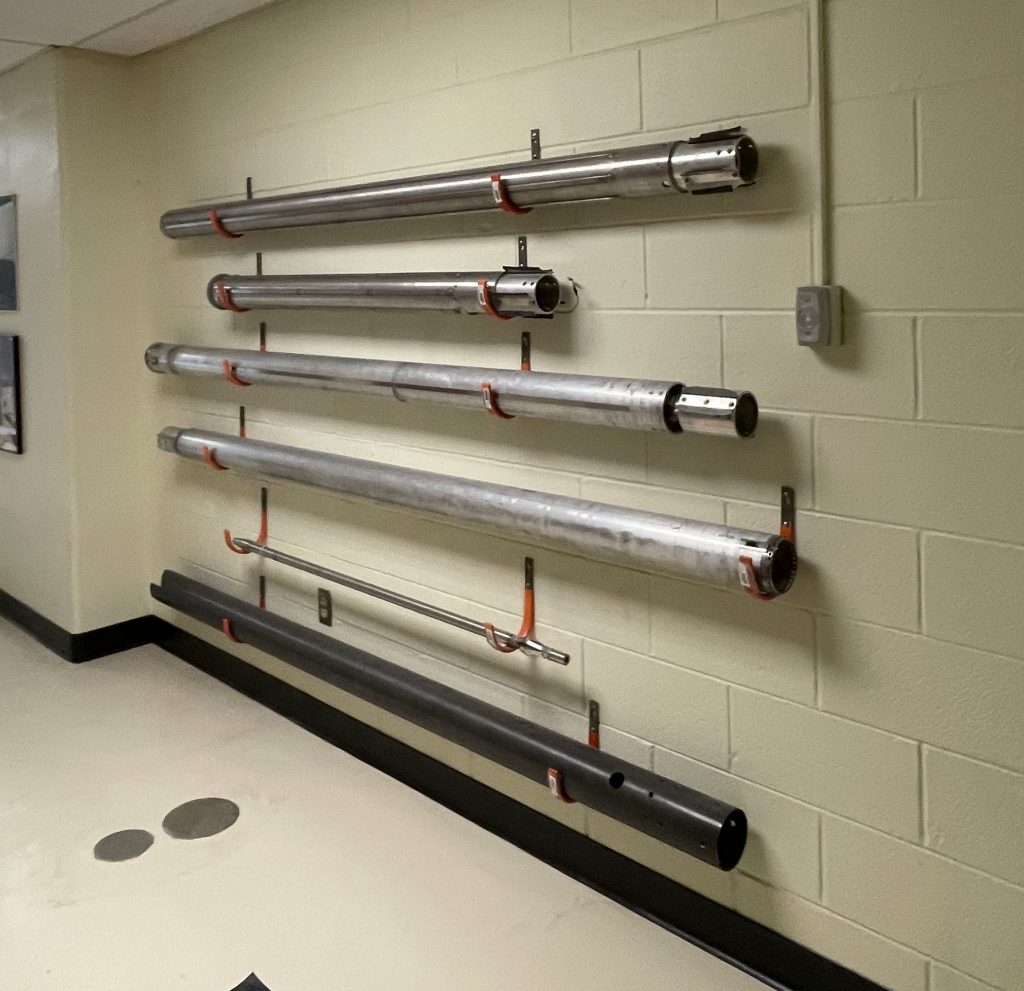
For example, understanding the rheology of ice in vital. Like the Earth’s crust, glaciers have a brittle zone near the surface and a more ductile zone at depth. The temperature of the ice and its behavior is critical to designing and machining the drills that work to successfully recover these frozen archives.
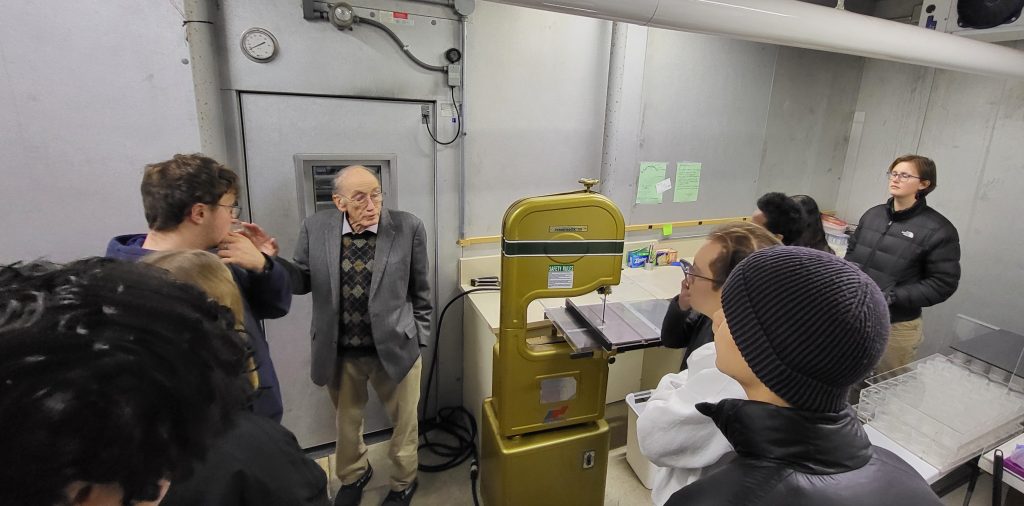
One of the highlights of the trip is touring the freezer where the ice cores are archived. The temperature is maintained at -30F and the scientist work under these conditions.
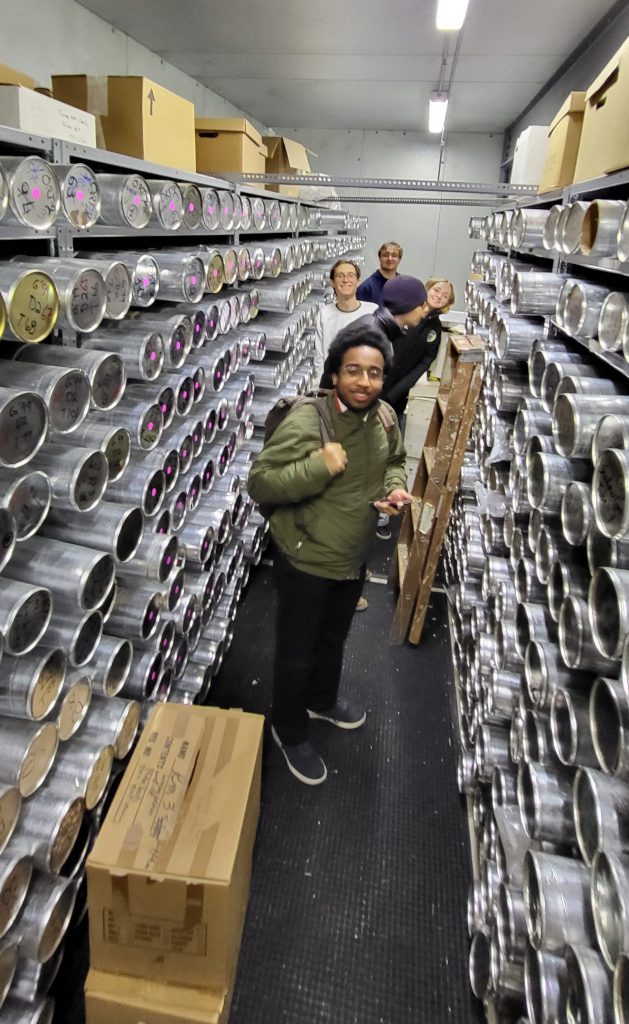
Ice core shopping at -31F.

The group is blown away thinking about how an ice cores can reveal information about the variability of the monsoons on a variety of timescales.
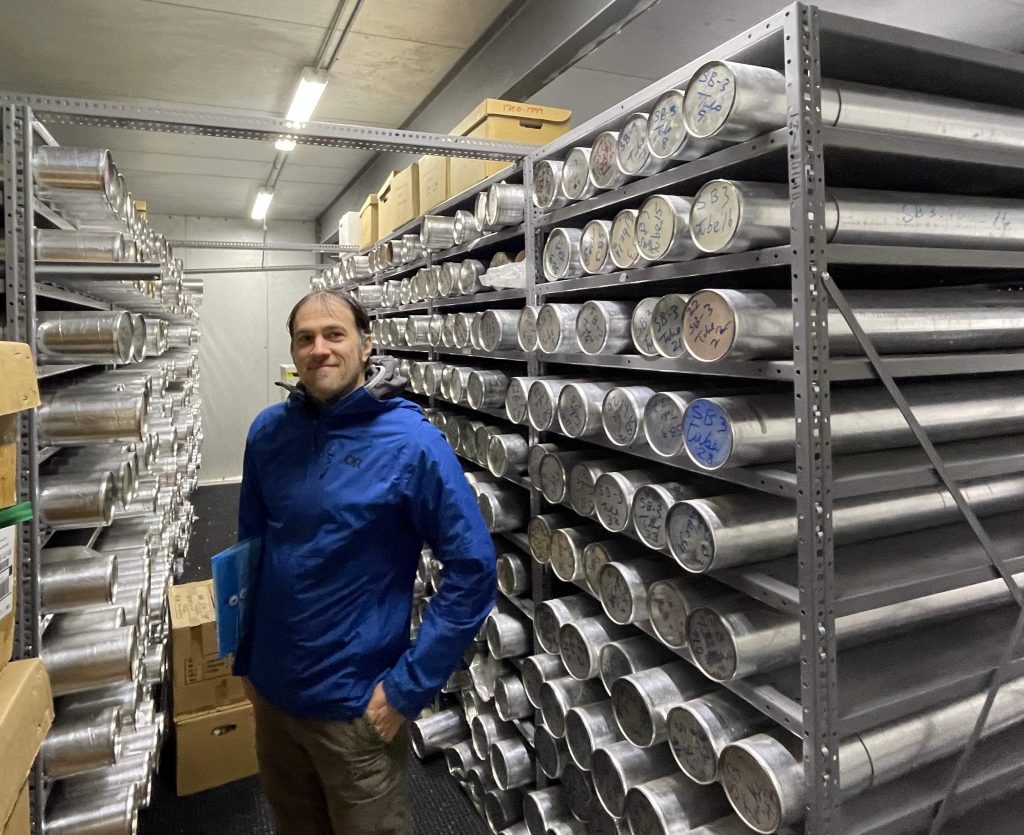
Special thanks to Nick Wiesenberg for arranging the trip and for providing snacks. The Paleoclimate class is lucky to have such able logistical support. Dr. Thompson would agree that logistics is more than half the battle in a successful expedition.
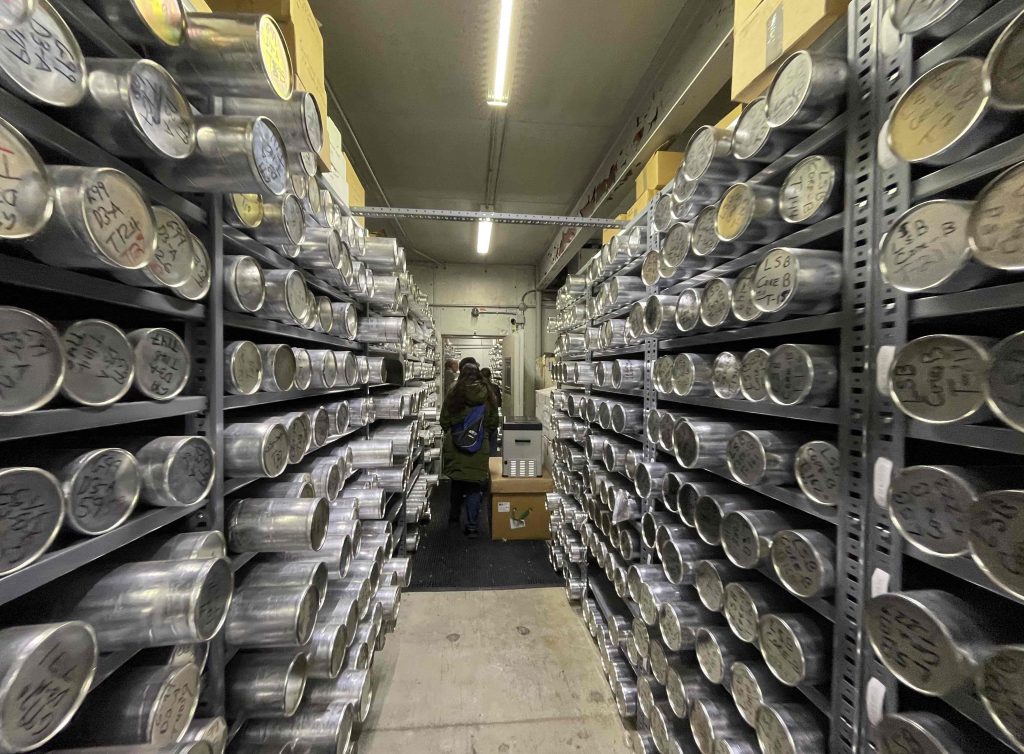



What an honor to have Dr. Lonnie Thompson lead the tour of this magnificent place. And I’m pleased I still recognize some students!